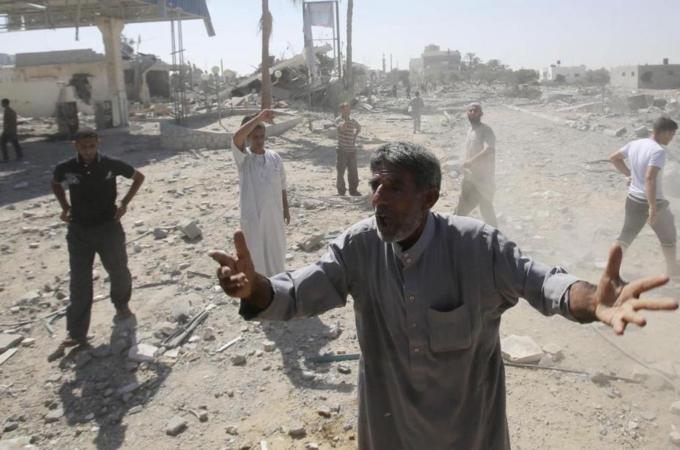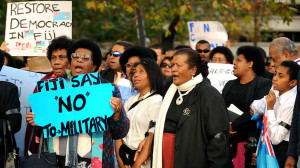By Kathryn Maureen Ryan
Impunity Watch Reporter, Managing Editor
Gaza City, Gaza – The United Nations Human Right Council has named three experts to an international commission of inquiry into possible human rights violations and war crimes committed by both the Israeli government and Hamas during Israel’s military offensive in the Gaza Strip. The U.N. statement announcing the formation of the panel said the independent team will investigate “all violations of international humanitarian law and international human rights law” in the context of the military operations that have been conducted since 13 June 2014.

William Schabas, a Canadian professor of international law was appointed to lead the panel. Critics have called Schabas anti-Israel and have complained that his leadership may lead to a bias investigation. Schabas has reportedly made several statements criticizing Israel leadership in the past and once declared, “My favorite would be Netanyahu within the dock of the International Criminal Court.” However, Schabas has written off critics saying that any suggestion that he is somehow anti-Israel is absurd. He said, “I have opinions like everybody else about the situation in Israel,” he said. “They may not be the same as Hillel Neurer’s [head of the Geneva based group U.N. Watch] or Benjamin Netanyahu’s, that’s all.”
The other members of the panel included Doudou Diene, a Senegalese veteran U.N. human rights expert and Amal Alamuddin, a British-Lebanese lawyer engaged to actor George Clooney. However, Alamuddin has denied that she would participate in the inquiry and it is not yet known who will replace her.
Navi Pillay, the United Nations High Commissioner for Human Rights said on July 31 that she believed that the Israel government was deliberately defying international law in its military offensive against Hamas in Gaza. She also said that she believes world powers should hold Israel accountable for these violations.
So far the Israeli military has attacked schools, hospitals and homes as well as Gaza’s only power plan, which provides critical energy to the regions civilian population. Hamas militants in Gaza have also violated human rights by firing rockets indiscriminately into Israel territory, Pillay said.
The Israel government has dismissed the inquiry led by the Human Rights Council as a “kangaroo court.” In a statement, Israeli Foreign Ministry spokesman Yigal Palmor issued a statement dismissing the UN inquiry. He stated that in the view of the Israeli government the “the Human Rights Council had long ago turned into the ‘terrorist rights council’ and a kangaroo court, whose ‘investigations’ are pre-determined.”
Hamas Spokesman Sami Abu Zuhri in Gaza said that “Hamas welcomes the decision to form an investigation committee into the war crimes committed by the occupation against Gaza and it urges that it begin work as soon as possible.”
The armed-conflict in Gaza has killed 1,938A Palestinians and 67 Israelis and has devastated large tracks in the densely populated Gaza Strip, damaging civilian property and leaving thousands of Palestinian Civilians displaced.
For more information please see:
The New York Times – Israel Braces For War Crimes Inquiries on Gaza – 14 August 2014
Al Jazeera – UN Names Gaza War Crimes Probe Panel – 12 August 2014
Israel National News – UN Gaza Probe Head: Me? Anti-Israel? – 12 August 2014
Reuters – U.N. Names Panel To Probe War Crimes in Gaza; Israel Slams It – 12 August 2014
 (New Haven) — Today, the Iran Human Rights Documentation Center (IHRDC) released a detailed report, Apostasy in the Islamic Republic of Iran, explaining the jurisprudential as well as the legal context in which apostasy cases are prosecuted in the Islamic Republic of Iran. The report takes an in-depth look at a number of apostasy cases involving a diverse range of defendants, and provides an account of the legal and religious issues raised in each case. A full version of the report is accessible
(New Haven) — Today, the Iran Human Rights Documentation Center (IHRDC) released a detailed report, Apostasy in the Islamic Republic of Iran, explaining the jurisprudential as well as the legal context in which apostasy cases are prosecuted in the Islamic Republic of Iran. The report takes an in-depth look at a number of apostasy cases involving a diverse range of defendants, and provides an account of the legal and religious issues raised in each case. A full version of the report is accessible 
